×
Save 20% On Your Purchase!
Use code SAVE20 at checkout to save on your purchase today from my Herbal Shop!
×
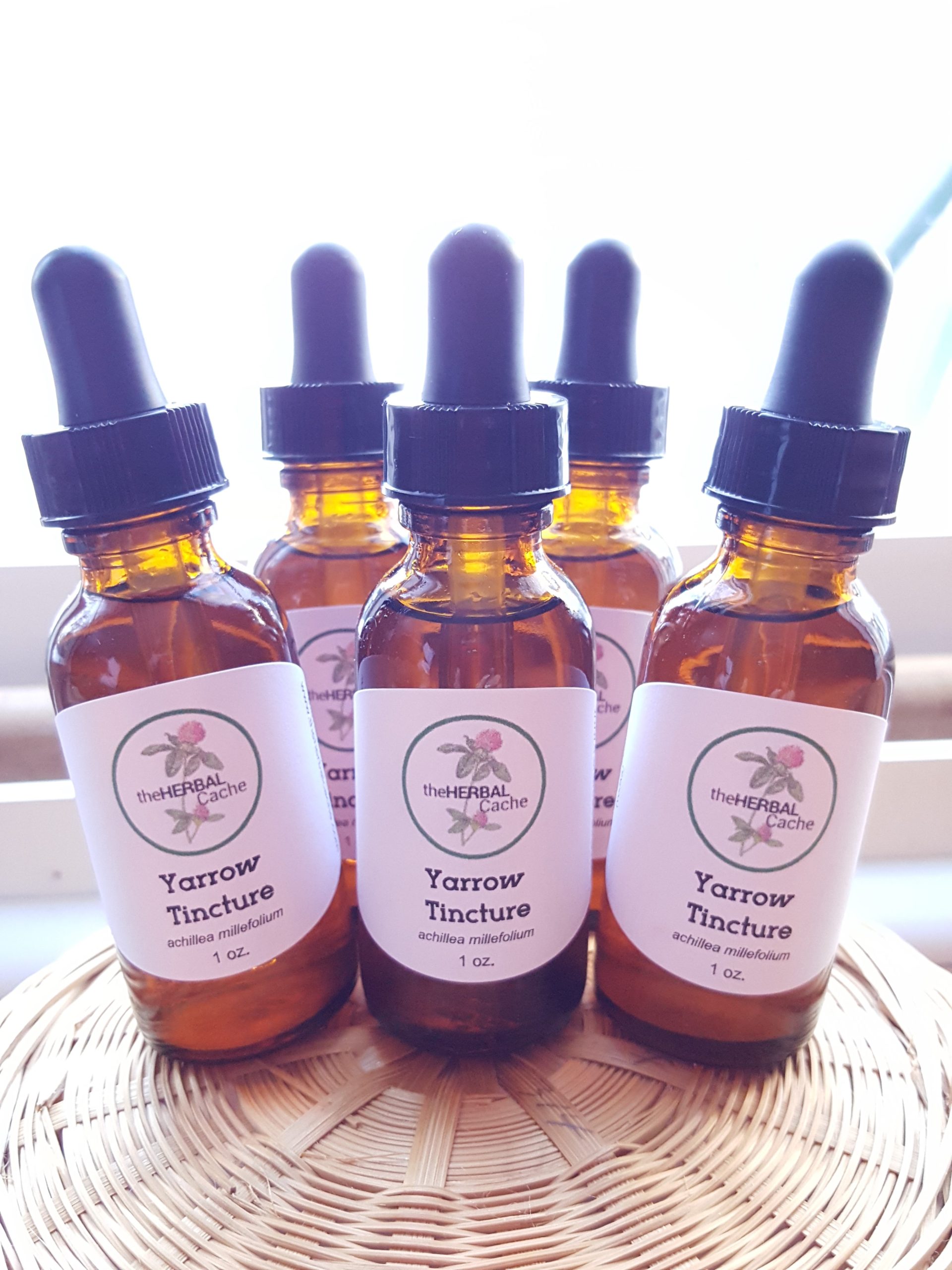
Yarrow is one of the world’s oldest medicinal plants and has been used for centuries. It was found among other medicinal herbs in a Neanderthal burial site in Iraq, which dates from around 60,000 BC.
Throughout history, it has been used for treating wounds, hence its common names “soldiers’ woundwort” and “staunchweed”.
Achillea millefollum
The genus, Achillea, was named after the Greek hero, Achilles, who used plant extracts to treat soldiers’ wounds in the battle of Troy. Millefolium means “a thousand leaves”.
The most common and well known use for yarrow is healing wounds. It also helps to control the bleeding of lacerations, puncture wounds, and abrasions.
Because of yarrow’s anti-inflammatory and antiseptic oils, astringent tannins and resins, it possesses excellent wound healing qualities. It also contains silica, which will help in repairing damaged tissue.
Achillea millefollum has antibacterial and antimicrobial so it will help in preventing any infection from setting in.
Make yarrow a staple in your first-aid kit. You never know when it will come in handy.
Yarrow is considered a bitter, which makes it a great partner for digestion. This in turn helps the body absorb more nutrients. It also helps with poor appetite due to low digestive secretions and general inflammation that makes tissues not function well. It has a slight affinity for the gallbladder and liver.
This plant can also help if you get food poisoning, by getting the toxins out of your system.
Yarrow has been used throughout history in relation to blood. It both activates blood platelets and breaks up coagulated blood. By thinning the blood, it moves congestion in the portal vein, the pancreas and the lungs.
It also stimulates the bone marrow and increases white blood cell production.
Achillea millefollum may also lower blood pressure by moving blood to the skin and easing the burden on the heart.
Yarrow is an astringent, and because of that, it is wonderful for varicose and spider veins. It astringent properties help tighten and tone the walls of the veins. This is the key ingredient in my ever popular varicose vein cream. Check out my blog post on varicose veins to learn more.
Place some crushed leaves up against the aching tooth and it will help relieve the pain.
Yarrow is used to protect the skin from excessive sun or wind. It can also help to clear up skin acne.
The astringent properties make it a go-to herb when one is hit with diarrhea.
Because it is a diuretic, yarrow promotes urine production and flow, which helps let out excessive fluids and toxins through enhanced urination.
The diaphoretic actions of yarrow can help move toxins out of the body through sweating, which helps the body to break fevers. By relaxing the skin, it will open the pores to allow copious sweating and the release of toxins.
Yarrow fights infection, helps with nausea, stimulates sweating, and lowers fever. Through thinning the blood and increasing circulation, it also helps congested people breath better. A classic cold and flu remedy is a combination of yarrow, peppermint and elderflower drunk hot.
Yarrow has been used successfully to treat asthma attacks through thinning the blood and increasing blood flow in the lungs.
If you ever get a nosebleed, all you have to do is pick a few fresh leaves and rub them between your hands to bruise them, releasing the aromatic oil. Roll the leaves into a nasal plug, insert into the affected nostril and leave until the bleeding completely stops before gently removing the plug.
But beware – yarrow can also cause nosebleeds as well. It is one of those plants that can cause what it cures. Hence, one of its nicknames is “nosebleed”.
Menstrual Cycle
Yarrow contains sterols, which have actions similar to hormones, and aid in balancing the menstrual cycle. So it is applicable in both extremely heavy or very scanty (and absent) menstruation. It may also be used externally as a sitz bath for painful cramping during menstruation.
In Sweden, they sometimes use yarrow in place of hops when brewing beer. It is said to be more intoxicating that way.
Yarrow has many uses in the garden. It’s small, delicate flowers are wonderful for bringing in bees and butterflies.
Yarrow is a great companion plant. It’s root secretions strengthen and protect nearby plants and help them become more disease resistant.
The roots of the yarrow plant bind loose soil together, thus helping prevent erosion.
Every garden should contain at least a clump of yarrow to help maintain a healthy ecosystem.
Many of the superstitions and incantations that involve Yarrow are focused on finding one’s partner. Many traditions suggest that the seeker, mainly young girls, would sew an ounce of Yarrow in a piece of their clothing or place it under their pillow before going to sleep.
“Good morrow, good morrow,
To thee, braw yarrow,
And thrice good morrow to thee;
I pray thee tell me today or tomorrow
Who is my true love to be.”
Yarrow is viewed by some as having a protective quality from “bad vibes” or that feeling of “everyone is against me”.
By using it as a flower essence or having the actual plant, it can help protect one from the negative outside influences one may have.
I wildcraft my yarrow in central Minnesota and make tinctures. They are available for purchase HERE.
https://wildfoodsandmedicines.com
All photos are the property of theHERBAL Cache, unless otherwise noted.
Motherwort may be just a weed to most, but it has many uses and benefits. Hidden among the other green plants, it thrives and flourishes. If you just look for it, you will find it. If you don’t see it, you’re not looking hard enough, as it can get to ten feet tall in places!
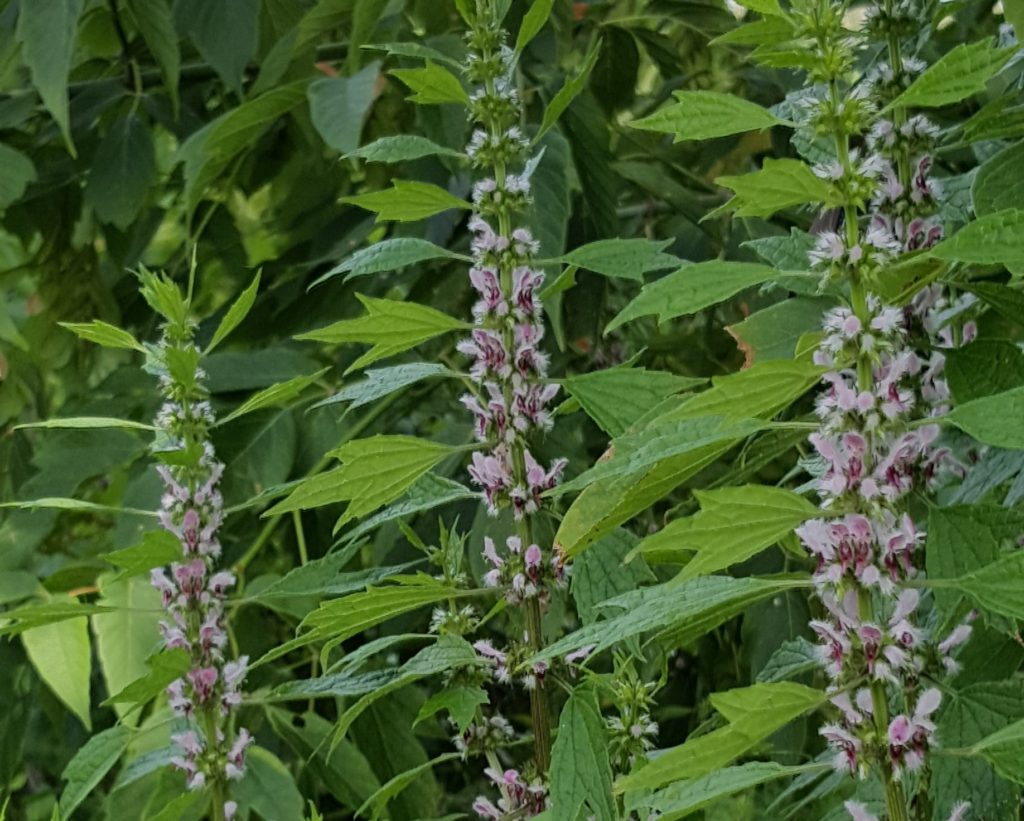
It’s botanical name is Leonurus cardiaca, says a lot right there. Leonurus meaning lion-hearted or of the lion. Motherwort is a strong and robust plant, thriving in most conditions. This most likely occurs, because it is in the mint family, making it hardy and easy to grow.
Cardiaca, of the heart, shows that motherwort has a large affinity for the cardiovascular system and has been used for centuries for that purpose.
The common name, motherwort, also has meaning. With wort meaning “herb”, we get “Mother’s Herb”. This makes it a wonderful remedy for those mothers with anxiety or high stress, and for those who may be worries about their own mother.
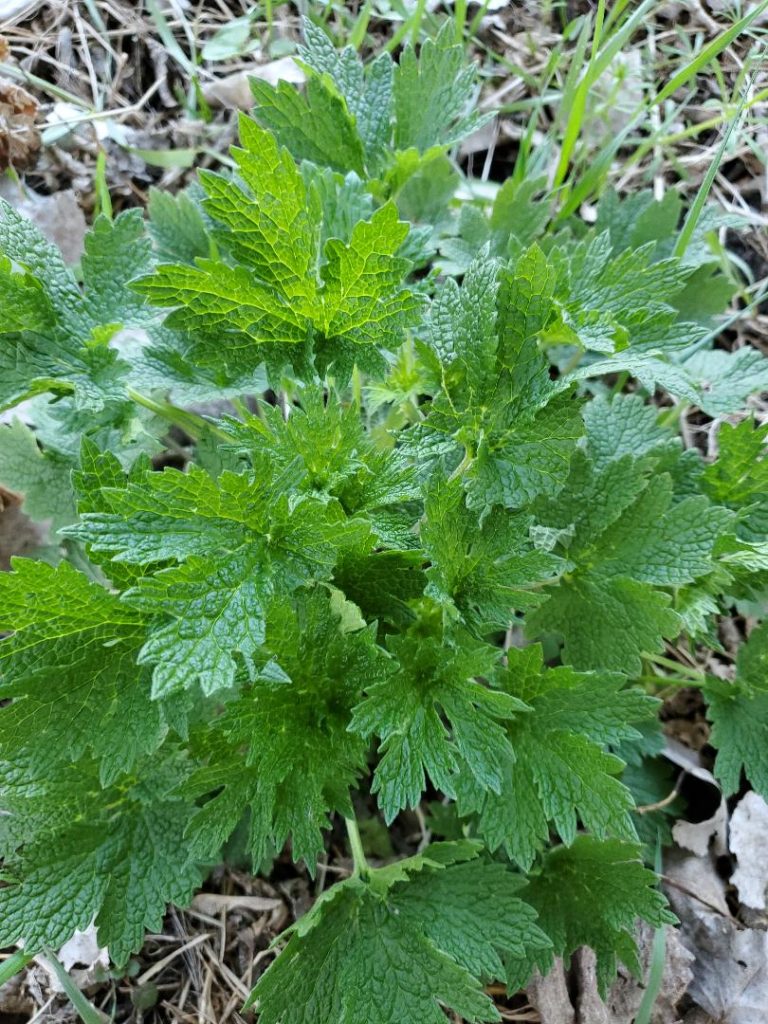

Motherwort is loaded with many vitamins and minerals, the reason it can help and support our bodies in so many ways.
Motherwort is wonderful for the heart and cardiovascular system. It seems to work even better when paired with a tincture of hawthorn. It may even help those with high blood pressure and heart palpitations.
It is also quite useful for all heart conditions associated with anxiety and tension.
On the emotional side, motherwort may even help with heartache. Use in conjunction with linden or lemon balm to help lift one’s mood and spirits.
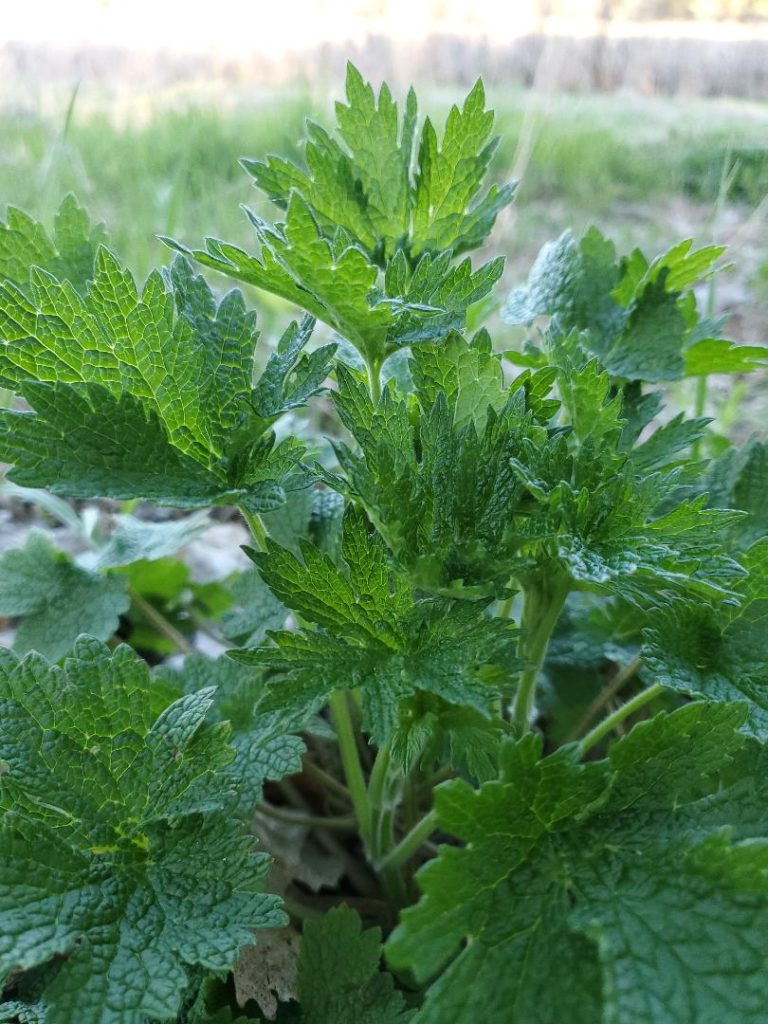
This herb is also good for the nervous system in helping calm and relax, especially in stressful situations. Motherwort seems to help alleviate tension and irritability.
There is no better Herb to drive Melancholly Vapors from the Heart, to strengthen it, and make a merry cheerful blith soul.
Nicholas Culpeper, The English Physician – 1652
Culpepper also classified motherwort among the “loosening medicines,” i.e. those “having a relaxant effect on muscles, tendons, ligaments, and membranes…”
From the name, we know that motherwort is also the herb for women. It helps with PMS, fertility, painful menstruation, hot flashes, lack of menses and delayed menstruation. By toning the uterus, it helps to prevent cramping.
**Do not use during pregnancy!
Motherwort also helps those in pain from MS, chronic fatigue, fibromyalgia and other nerve conditions.
It may also help with intermittent fever diseases such as typhoid, and respiratory ailments, such as bronchitis, asthma, coughing and wheezing.
This herb also supports the kidneys, digestion and helps with night sweats.
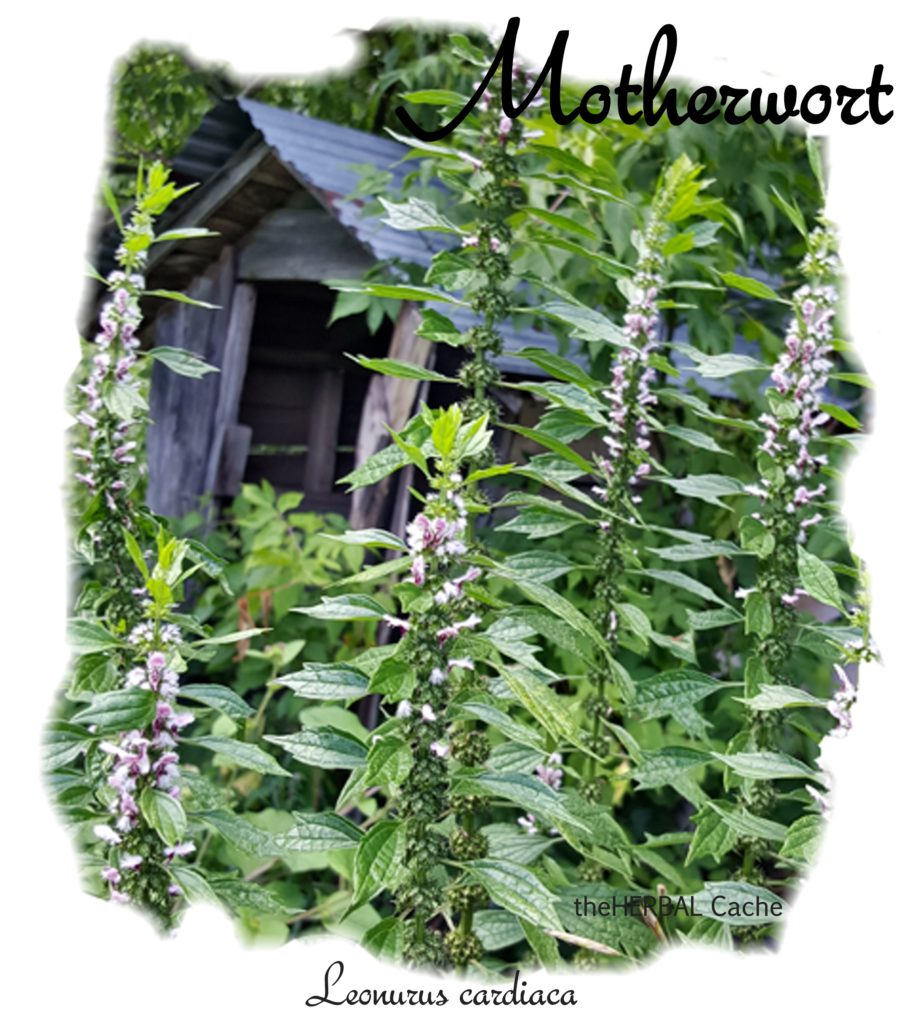
Robert Whelan says “I have come to develop a great deal of respect for how much Motherwort can shift a stuck pattern of tension in the heart or in the smooth tissue of the womb. I think that if it is used wisely for the right person it can be a profoundly relaxing and healing herb.”
“Statements herein have not been evaluated by the Food and Drug Administration, and are not intended to treat or diagnose any disease or health condition. It is also recommended that patients check with their doctors before taking herbs, to ensure that there are no contraindications with prescription medications.”
https://www.herbalremediesadvice.org/benefits-of-motherwort.html
https://rowanandsage.com/blog/2018/21/9/plant-profile-motherwort
https://www.wildnesswithinliving.com/blog/2016/7/22/motherwort
http://www.susunweed.com/herbal_ezine/July08/wisewoman.htm
http://www.susunweed.com/Article_Motherwort.htm
https://www.rebeccasherbs.com/pages/herb-article-br-motherwort
eclecticschoolofherbalmedicine.com/motherwort/